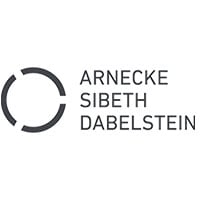

Director law of international trade and trade facilitation | Association of German Chambers of Commerce and Industry



Miriam Palczynska-Zachmann
Director law of international trade and trade facilitation | Association of German Chambers of Commerce and Industry
Focus On… Working in-house in the Association of German Chambers of Commerce and Industry
We give German companies, especially SMEs, a voice in the process of new laws being drafted and imposed in the field of foreign trade law including EU sanctions. We identify needs of German companies from all over Germany, coordinating communication with foreign trade law experts in the 79 local chambers of commerce within Germany in which German companies are members by law. As in-house legal experts within the Association of the German Chambers of Commerce we must not only understand the practical needs of very different types of local German industries and anticipate negative impacts of new foreign trade laws affecting them, but we also need to understand where and how political decisions are being made and poured into law on a national and international level.
In order to act as mediators between these very different worlds, that is the world of law creators and the world of those to become subject to the newly created laws, we need to observe closely, communicate openly and heavily rely on a good network and cooperation between authorities and industry. We communicate closely with German industry via the local chambers of commerce with whom we form a big network of team players. On the other hand, we interact closely with German authorities and the German government on German and EU foreign trade regulation by drawing the German government’s attention to the practical problems of application and implementation of new laws affecting foreign trade.
Recently, German foreign trade has been heavily influenced by the EU economic sanctions against Russia and Belarus. Acting as a political tool, EU sanctions and national laws in the economic sanctions field are often being enacted within a very short period depending on the concrete political situation. The practical effects of their application for German companies often only become clear in retrospect after the relevant laws have already been enacted. Thus, it is crucial to be informed about ongoing legal developments in the field and address critical points in a timely manner so that they may already be considered in the law-making process. One big achievement of our organisation recently concerned the draft of the German Sanctions Enforcement Act.
EU sanctions against Russia include the freezing of assets of listed oligarchs. In practice, however, it is difficult to identify such assets. Therefore, the Sanctions Enforcement Act expanding the state’s ability to locate oligarch assets was recently discussed and eventually passed the Bundestag. Due to our good network, we received the draft in advance. Among others, the draft law provided for a reporting obligation with a threat of imprisonment of up to one year for logistics operators in case of knowledge concerning assets of sanctioned oligarchs. With respect to criminal liability this could have meant a great burden for the German logistic industry.
However, thanks to us pointing out the negative consequences such criminalisation would have on logistics operators in Germany, the draft law was amended to the effect that the violation of the reporting obligation by logistics operators is solely an administrative offense.